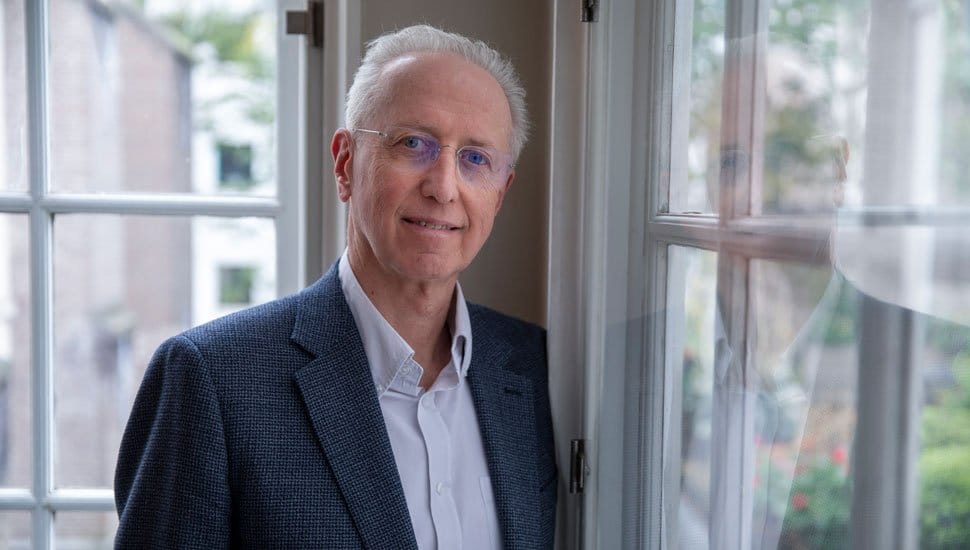
In this Q&A, Earth4All Transformational Economics Commission Andy Haines discusses the place of health in relation to climate change, Covid, and politics.
How are health and climate change connected?
We live on a small, finite planet. In achieving progress, we are increasingly breaching the planetary boundaries and undermining the natural systems on which our health depends. Climate change poses major threats to health through many pathways including: the effects of extreme heat, floods, wildfires and droughts, on mental and physical health; changes in the transmission of infectious diseases (including vector-borne disease such as malaria and dengue); undernutrition and displacement of populations.
The benefits of moving towards a low carbon economy isn’t only the reduction of dangerous climate change risks. There are also short-term health benefits, such as reduced air pollution, and healthier food systems and diets. On top of that, it’s also about the global environment changes such as land use change, and changes in the marine ecosystems, as these changes threaten the prospects for maintaining and improving health in the future.
How can we ensure the conditions for human health are maintained in the long term?
When looking into the future, there are two barriers to the sustainability of the world economy vis-a-vis health. First, even if part of the population lives with reasonable prospects for a healthy life, if there are profound inequities in the system, such as access discrimination, then that system isn’t sustainable. Secondly, if we achieve that equity with accessible, non-discriminatory heath systems for all, but in a way that undermines the natural systems, then that health system can’t be upheld in the long run.
We need to move towards a completely different trajectory. We need to put human health, wellbeing, and environmental sustainability at the centre of the world and national economies.
The Earth4All initiative is showing how we can transform the economy into one which sustains human health and wellbeing within the planetary boundaries. My role in the Earth4All Transformational Economics Commission is to ensure that whatever economic approach we design, it safeguards human health, equitably, and within these planetary boundaries.
How did the COVID pandemic affect how we value wellbeing?
There are many tensions in terms of responding to the pandemic. Some are in favour of opening up the economy in order to sustain jobs and give people the potential to work and interact. Others are in favour of locking down to reduce the risk of transmission. There is a balance between these two visions. Throughout the crisis, the strategies haven’t looked at health in a holistic way to evaluate impacts against both mental and physical health.
At the moment, because of COVID, there is a greater appreciation of the importance of public health. But how long will that last? And to what extent will it motivate transformational change? Many economic recovery packages support the fossil fuel intensive economy from which we need to be moving away. Overall, COVID has not really stimulated transformational change in many respects, although some parts of the world are doing better than others.
As a result of the pandemic the rich have gotten richer, and the poor have gotten poorer. COVID didn’t only increase the imbalance in economic wealth, it increased the imbalance in power distribution in society. There is a danger that vested interests oppose change when wealth is accumulated on the back of quite unsustainable economic activities, like the fossil fuel industry which is a very powerful force in many countries.
From the point of view of health, what is your vision for the future?
Often, when we think of health, we think of healthcare. But that is only one dimension of health. The determinants for much of our health are social and environmental.
We need a functioning and equitable health care system with universal coverage, which is what Sustainable Development Goal 3 is about. It’s very important to have equitable access to an affordable healthcare system, which doesn’t discriminate, but provides healthcare on the basis of need. That’s an enduring challenge which hasn’t been met.
Yet, we also need to look beyond the healthcare system and realise that many policies determine our health, such as policies in the energy sector, housing, transport, food, and agriculture.
Energy policy, for instance, determines the air pollution we are exposed to, as the burning of fossil fuel is a strong cause of air pollution and climate change. Providing clean, renewable, reliable and affordable energy is one really important step towards health for all.
Another is the food system, which is responsible for about 30% of greenhouse gas emissions, and is a major driver of biodiversity loss. It’s a dysfunctional system: many millions of people are suffering from undernutrition whilst a couple of billion people are overweight or obese. Our food system is not providing the affordable and nutritious diets that we need, yet is driving significant environmental change. It’s not fit for purpose. In high-income countries, we consume too many animal products, and not enough fruit, vegetable, nuts and seeds. Our dietary patterns need to shift towards more fresh, plant-based foods. There is a lot of overlap between an improvement of dietary choices and the reduction of greenhouse gas emissions. For poorer populations threatened by climate change, where crop yields are going to decline, developing climate resilient food systems that don’t contribute to environmental degradation will be a key challenge.
Where do we start?
It’s a systems problem, there isn’t a single magic bullet. We have a dysfunctional system, and we need to reorient it towards a sustainable trajectory.
Sometimes, economic growth is needed, but in high income countries, the idea that we can have perpetual economic growth is not credible. Conventional economics places growth at the heart of the economic model, but the heart of an economic model should be to sustain the human population in a healthy state, within environmental constraints.
We must place human health, wellbeing, and environmental sustainability at the centre of our economies.
Andy Haines, member of the Earth4All Transformational Economics Commission, co-chair of the Lancet Pathfinder Commission on health in the zero-carbon economy, and professor of environmental change and public health at the London School of Hygiene and Tropical Medicine.
Further resources:
Planetary Health: Safeguarding Human Health and the Environment in the Anthropocene (Andrew Haines & Howard Frumkin, 2021)
The Lancet Commissions (2015). Safeguarding human health in the Anthropocene epoch: report of The Rockefeller Foundation–Lancet Commission on planetary health.



